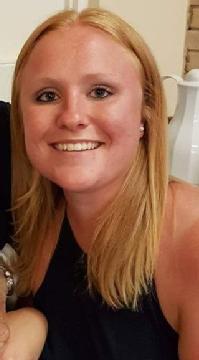WATE 2019 Winner: Samantha Cooke (PAIS)
Why did you start teaching? What (or who) inspired you?
I started teaching before I undertook a PhD, as a tutor and ESL teacher. I was then afforded the opportunity to teach undergraduate seminars from the second year of my PhD onwards. I originally trained as an ESL teacher because I am fascinated by language and this was an active way of engaging with it. After more than a decade of teaching, seven years of which have been in Higher Education, what inspires me the most are the students and their differing approaches to learning and teaching.
What pearls of wisdom have you been given over the years that have helped you with your teaching?
Seminars are not lectures. This is the time where students actively engage with the material, you don’t have to talk for the whole session. Also, critical self-reflection on your own practices is key.
Is there anything you wish someone had told you when you started out?
It’s ok not to know everything; you aren’t Google.
If you were mentoring a first-time teacher, what advice would you give?
- It’s ok not to be perfect, (very) good is still something to be proud of.
- Don’t take yourself too seriously all of the time.
- Learn from the students.
What advice/top tips would you give to more experienced teachers?
Be open to trying new methods in the classroom and learn from those you are teaching.
What new technologies are you currently using to enhance your teaching? What are your top tips for using them?
I don’t really use technology – beyond powerpoint and the internet. I try to teach more complex issues through film recommendations as this allows students to engage with the topic in a more relaxed manner. It then also allows for some interesting debates about the topic, and the purpose of the sources they have engaged with – for example, Hollywood vs. Academic Literature.
What new or future teaching innovations are you looking forward to?
I would love to re-vamp some of the assessment methods, allowing students to engage more with multimedia technologies to demonstrate their understanding, for example, blogs and videos.
What does winning a WATE award mean to you?
It means a lot. I don’t really know how to explain it. Recognition of this kind is amazing, it’s not why I teach, but it is so nice to know that my efforts don’t go unnoticed (thank you to whoever nominated me!) and that they are having a positive impact on my students.
What do you enjoy the most about teaching? What’s the best part of your job?
The students. They are what make this job to rewarding, motivating, and educational. No student is the same and the ideas and learning preferences that each one of them brings to the classroom is inspiring. This is not only about how they learn and engage with the topics, but also about how I teach.
What are the biggest challenges faced by teaching staff? How do you overcome these?
From the perspective of a Teaching Fellow, the workload is daunting and it often means we are unable to develop our own research profiles at a steady pace. Contact hours are high and marking expectations are often unrealistic. We overcome these by not suffering in silence, in PAIS we have an amazing community and we support each other as much as we can – sharing experiences and brainstorming ideas.
What lessons have you learned from your students?
Be creative and don’t take yourself too seriously. My sense of humour (and sarcasm) works in the classroom as it makes it more relaxed and conducive to learning. Most importantly – learning never stops, even when you are the teacher.
If you could write a recipe for the perfect inspiring teacher, what ingredients would you need?
- Knowledge
- Sense of humour
- Open minded
- Willingness to learn
- Creativity
- Passion (for teaching and the subject)
- Drive
- An ability to make learning fun
- Do it because you want to, not because it is part of the job.
Enjoyed hearing from Samantha? See the full list of 2019 winners and read other interviews.

